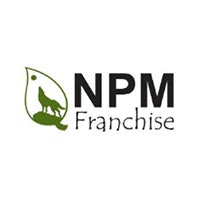The Franchise Disclosure Document
Federal franchise law regulates the offer and sale of franchises. Several states also have laws that regulate franchising, including the offer and sale of franchises. These laws require franchisors to create a Franchise Disclosure Document (frequently referred to as the “FDD”). An FDD is an informational prospectus that gives more information about the franchisor, the franchise system, and the franchise agreement.
Franchise laws require a franchisor to deliver its Franchise Disclosure Document to prospective franchisees so that they can make an informed decision about purchasing a franchise. Under the federal law and most state franchise laws, the FDD must be delivered at least 14 calendar days before the franchisee signs any franchise-related agreements or pays any money.
The FDD is divided into 23 major sections called “Items”. Following is a list of those Items:
- The Franchisor and Any Parents, Predecessors and Affiliates
- Business Experience
- Litigation
- Bankruptcy
- Initial Fees
- Other Fees
- Estimated Initial Investment
- Restrictions on Sources of Products and Services
- Franchisee’s Obligations
- Financing
- Franchisor’s Assistance, Advertising, Computer Systems, and Training
- Territory
- Trademarks
- Patents, Copyrights and Proprietary Information
- Obligation to Participate in the Actual Operation of the Franchisee Business
- Restrictions on What the Franchisee May Sell
- Renewal, Termination, Transfer and Dispute Resolution
- Public Figures
- Financial Performance Representations
- Outlets and Franchisee Information
- Financial Statements
- Contracts
- Receipts
We will meet with you to gather information to be included in the Franchise Disclosure Document. We will help you understand the specific information that is required to be included in the FDD and the purposes of such disclosures. We will use our Questionnaire as the outline for out meeting – making the information gathering process as efficient and effective as possible.
The Franchise Agreement
The Franchise Agreement is the binding contract between the franchisor and the franchisee. The Franchise Agreement specifies the parties’ rights and obligations. The Franchise Agreement should protect the integrity of the franchise system, including protecting the franchisor’s trademarks, confidential information and goodwill. It should be as clear and concise as possible. The agreement should also be fair and even-handed. Following are some examples of matters typically treated in the Franchise Agreement:
- Initial and ongoing franchise fees
- Deadlines for finding an acceptable lease location (if applicable) and opening the franchise for business
- Franchise territory protections (if applicable)
- Specifications for equipment, supplies and inventory
- Conditions for renewal of the Franchise Agreement upon its expiration
- Conditions for the franchisee’s right to sell the franchise to a third party (including franchisor’s right of first refusal if applicable)
- Triggers for termination of the Franchise Agreement
- Post-termination obligations
- Covenants not to compete
- Minimum sales requirements (if applicable)
- Dispute resolution mechanisms required in the event of a dispute (which may include alternative dispute resolution methods such as mediation and arbitration)
We will look forward to your input on these and other subjects to be treated in the Franchise Agreement. We also anticipate making several recommendations based on our experience in creating franchise contracts.






